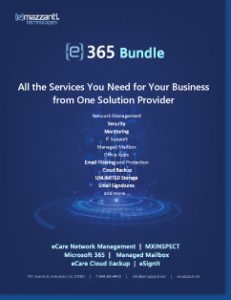Businesses in all industries have faced pressure to migrate to the cloud in recent years, and attorneys are no exception. However, many law firms have delayed migration, citing concerns about security and lack of control. But with the right tools and proper preparation, a cloud-based law firm can safely harness the myriad benefits of operating in the cloud.
Cloud-based vs. On-Premises
Traditionally, law firms have operated using software installed on local servers and computers. This gives firms the advantage of retaining tight control over applications and security, an important consideration with highly sensitive data. But with both lawyers and clients demanding remote access, on-premises systems have become a liability.
In some respects, the pandemic sent everyone to the cloud. Attorneys conduct client interviews, take depositions, and even attend court over Microsoft Teams and Zoom. But a truly cloud-based law firm moves beyond video conferencing to use practice management tools accessible to authorized users from any location via the internet.
Why Legal Firms Delay Cloud Migration
Even with mounting pressures to move away from on-premises systems, many firms remain hesitant to migrate. Legal teams store extremely sensitive data and operate in a highly regulated environment. Consequently, in many respects, this conservative approach has merit.
For instance, organizations leave themselves vulnerable when they rely on default cloud security tools and fail to understand their own role in securing cloud data. Additionally, without proper data governance, information stored in a multi-cloud environment can slip under the radar. This creates shadow data that lives outside the protection of security controls.
However, with careful planning, firms can address these concerns and gain the competitive edge that the cloud provides.

Advantages of Running a Cloud-based Law Firm
Many law firms cite remote work needs as their primary motivation for migrating to the cloud. Even as the pandemic eases up, lawyers and clients both have become used to the flexibility of virtual meetings and remote work. And with talented young lawyers demanding that flexibility, cloud-based law firms find it easier to attract and retain legal talent.
Clients, too, appreciate the online services that come with a cloud-based practice. And studies show that firms utilizing online client portals receive more casework.
As cloud technologies evolve, cloud-based law firms even see significant advantages in security over an on-premises system. In the first place, reputable cloud providers know they must meet stringent security and compliance standards to attract customers in highly regulated industries. Thus, they invest in leading edge security systems that would be unavailable in house.
Additionally, cloud-based systems offer exceptional disaster recovery options. If a hurricane destroys the office, for instance, critical data remains safe in the cloud.

Minimizing the Risks of a Cloud-based Law Firm
To safely realize the benefits of the cloud, firms must choose their solutions carefully and employ security and governance best practices. For example:
- Implement a cloud access security broker (CASB) – CASBs provide visibility into the cloud apps in use throughout the organization. They serve to enforce security policies and provide alerts to unusual activity.
- Strengthen information governance – By classifying sensitive data, firms can monitor data access, apply appropriate security and retention controls and ensure regulatory compliance.
- Automate where possible – Automation and AI help to streamline routine security and governance tasks. For instance, Microsoft Purview provides tools for automated data classification using pattern matching and machine learning. And Microsoft Defender for Endpoint uses machine learning to monitor for suspicious activity.
- Pay special attention to access management – While the cloud provider will protect the infrastructure, the law firm must secure user accounts and control data access. Be sure to only give users the minimum amount of access they need. And remove user accounts and access when employees leave the firm.
- Ensure appropriate amount of encryption – Cloud providers generally provide standard encryption for data in their data centers. However, for highly sensitive data or data shared outside the organization, firms should consider additional encryption.
The legal technology consultants at eMazzanti Technologies will help you build a cloud strategy that meets the needs of your firm. From migration planning to remote worker support and enterprise-grade security, we have the tools and expertise to ease your transition to the cloud.













